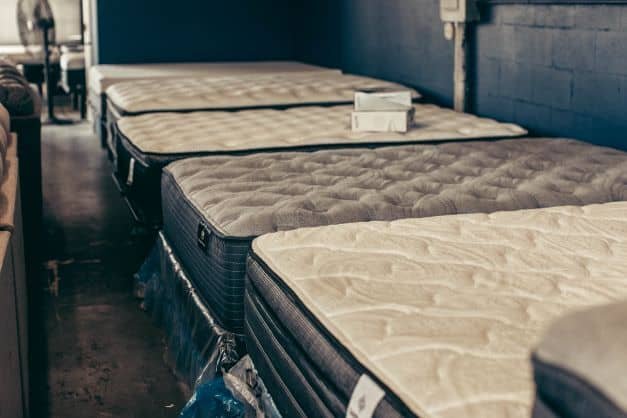The Science Behind Snoring
Snoring occurs when tissues vibrate near the airway in the back of the throat during sleep. As the muscles loosen and the airway narrows, the inhalation and exhalation of air cause the tissue to flutter and produce noise [1]. This vibration typically involves membranous parts of the upper airway that lack cartilaginous support [2]. Several common factors can contribute to snoring. One is nasal congestion, which may result from allergies, infections, or a deviated septum [3]. Nasal congestion reduces air flow through the airway, causing it to collapse and increasing the likelihood of snoring. Another factor is the natural relaxation of the tongue, mouth, throat, or airways during sleep [4]. This can cause these body parts to narrow and increase the chances of snoring.
In some cases, snoring is also associated with a more serious condition called sleep apnoea, in which the airways become temporarily blocked during sleep [5]. Sleep apnoea can lead to interruptions in breathing, resulting in poor sleep quality and health complications. Several factors can increase the risk of snoring, such as obesity, alcohol consumption, smoking, and sleep position. Identifying the underlying cause of snoring is crucial to address the issue and improving sleep quality effectively. Some potential solutions include lifestyle changes, adjusting the sleep environment, and seeking medical treatment when necessary.
Footnotes
Snoring: The Causes, Dangers, & Treatment Options | Sleep Foundation ↩
Why do people snore? – Scientific American ↩
Why Do People Snore? | Sleep Foundation ↩
BBC – Science & Nature – Human Body and Mind – Sleep Disorders ↩
Causes of Snoring
Snoring is a common sleep issue that affects a large number of people. It is primarily caused by the vibration of tissues near the airway in the back of the throat during sleep. When a person’s airway becomes partially blocked, the moving air causes the tissue to vibrate, resulting in snoring. To better understand the causes of snoring, let’s examine the physical and lifestyle factors contributing to this sleep disturbance.
Physical Factors
- Anatomy of the mouth and throat: The size and shape of the muscles and tissues in a person’s mouth and throat can contribute to snoring. Some individuals may be more prone to snoring because of their natural anatomy.
- Nasal congestion: A blocked or stuffy nose can lead to snoring by reducing airflow through the airway and causing it to collapse. Common causes include allergies, infection, and a deviated septum.
- Sleep position: Sleeping on one’s back can often cause the tongue to block the airway, partially contributing to snoring.
Lifestyle Factors
- Alcohol consumption: Consuming alcohol before bedtime can relax the upper respiratory tract, increasing the risk of snoring. Alcohol also relaxes the muscles in the roof of the mouth, tongue, and throat, further increasing snoring factors.
- Sleep medicines: Certain sedatives and sleep aids can relax the muscles in the upper respiratory tract, which may also lead to snoring.
- Weight: Carrying excess weight, especially around the neck, can put additional pressure on a person’s airway, increasing the likelihood of snoring.
Effects of Snoring
Snoring is a common issue many face, but it can have various adverse effects on a person’s health and relationships. This section will discuss the physical and mental health effects of snoring and its social implications.
Physical Health Effects
Snoring can be more than just a nuisance for the snorer and those around them. It has several physical health implications:
Sleep Apnoea: Snoring can be a sign of a more severe condition called sleep apnoea, where a person’s breathing is repeatedly interrupted during sleep. This can lead to an increased risk of high blood pressure, heart problems, and stroke.
- Interrupted Sleep: Snoring can cause a person’s sleep to be fragmented, leading to fatigue and daytime sleepiness. This can have a detrimental impact on a person’s daily functioning and overall well-being.
- Obesity: Studies have shown a connection between weight gain and snoring. Excess body fat can exacerbate snoring by narrowing airways and contributing to sleep apnoea.
Mental Health Effects
In addition to physical health effects, snoring can also have negative implications for a person’s mental health:
- Anxiety and Depression: The sleep deprivation and fatigue caused by snoring can lead to mood swings, anxiety, and depression. Chronic sleep disturbances can exacerbate existing mental health conditions.
- Cognitive Dysfunction: Adequate sleep is crucial for cognitive function. Therefore, sleep disruption due to snoring may result in impaired memory, reduced concentration, and difficulty problem-solving.
Social Implications
The impact of snoring extends beyond the individual and can result in social issues:
- Strain on Relationships: Snoring can lead to sleep disturbances for those sharing a bed or room with the snorer, which may cause frustration and tension. It may even contribute to developing separate sleeping arrangements, which can further strain emotional connections.
- Embarrassment: A person who snores may experience embarrassment and shame, leading to reluctance to participate in shared sleeping situations such as sleepovers or overnight trips with friends or family.
Treatment Options for Snoring
Medical Treatment
If snoring is affecting your quality of life, it is essential to seek medical advice. Depending on the underlying cause, a healthcare professional might recommend various treatments to address the issue. For instance, individuals with obstructive sleep apnoea (OSA) might benefit from oral appliances that help advance the jaw, tongue, and soft palate position. Nasal congestion could be treated with medication or nasal dilators, which keep the airway open during sleep (source).
Self-Help Options
Aside from medical interventions, several self-help options may work for those dealing with snoring concerns. Some practical approaches include:
- Sleeping on your side: This can help prevent the collapse of tissues at the back of the throat, reducing snoring. A helpful trick is to tape or stitch a tennis ball to the back of your sleepwear or invest in a special pillow or bed wedge.
- Adjusting lifestyle habits: Minimising alcohol intake, maintaining a healthy weight, and exercising regularly can help prevent snoring or reduce its severity.
- Practising good sleep hygiene: Establishing a consistent sleep schedule and creating a calm sleep environment may aid in minimising snoring.
- Using earplugs: While earplugs won’t stop snoring, they can temporarily relieve the snorer’s partner.
Frequently Asked Questions
How can I prevent snoring naturally?
There are several natural methods to prevent snoring. Maintaining a healthy weight can reduce snoring as excess fat around the neck can pressure the airway. Adjusting your sleeping position by sleeping on your side can help prevent the tongue from falling back and blocking the throat. Practising good sleep hygiene by establishing a consistent sleep schedule, avoiding caffeine and alcohol close to bedtime, and creating a relaxing bedtime environment can also help reduce snoring.
What causes snoring during sleep?
Snoring occurs when airflow through your mouth and nose is partially blocked during sleep. This obstruction can be due to various factors, such as the tongue, mouth, throat, or nasal airways relaxing and narrowing when asleep. Sometimes, snoring can also be caused by sleep apnoea, in which the airways become temporarily blocked during sleep.
Are there effective snoring aids available?
Yes, several snoring aids can help reduce or eliminate snoring. Some common snoring remedies include tongue retainers, mandibular advancement devices (mouthpieces), continuous positive airway pressure (CPAP) machines, specialist pillows, and wedge pillows. The effectiveness of these snoring aids varies from person to person, and it is essential to consult with a healthcare professional before trying a new snoring aid.
Is sudden snoring an issue to be concerned about?
Sudden snoring can sometimes be a cause for concern, especially if it is accompanied by other symptoms such as gasping for air, choking, or pauses in breathing during sleep. These symptoms may indicate sleep apnoea, a potentially serious condition that requires medical attention. If you or a loved one experiences sudden snoring or any of these symptoms, it is essential to consult a healthcare professional for further evaluation.
How do I cope with a partner’s snoring?
Coping with a partner’s snoring can be challenging, but several strategies might help. Encouraging your partner to adopt lifestyle changes, such as maintaining a healthy weight and avoiding alcohol before bedtime, can help reduce snoring. You can also try using white noise machines, earplugs, or headphones designed for sleep to block out the sound of snoring. In some cases, it may be necessary for the snoring partner to seek medical advice and explore snoring aids or treatment options, such as CPAP therapy or oral appliances.



